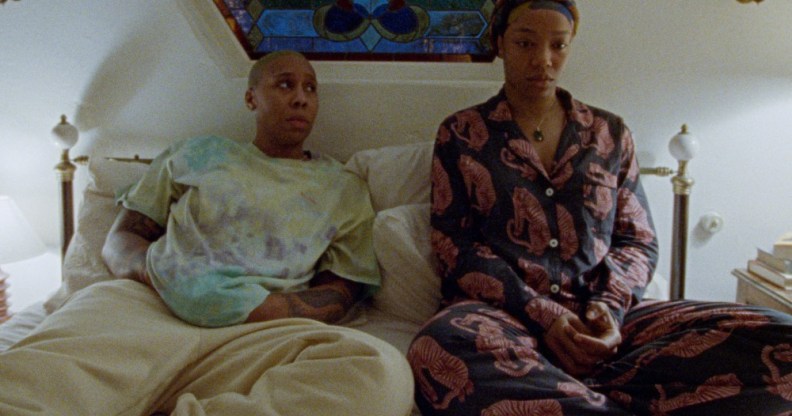New Master of None season wins praise for portrayal of queer people struggling to conceive

Master of None season three will focus on Denise (Lena Waithe) and Alicia (Naomi Ackie). (Netflix)
The new season of Master of None is winning praise for its portrayal of the challenges queer people face when trying to start a family.
The award-winning series debuted on Netflix in 2015 with Parks & Recreation star Aziz Ansari in the lead role – however, the show’s third season puts Lena Waithe’s queer character Denise front and centre.
The third season of Master of None follows Denise and her wife Alicia (Naomi Ackie) as they begin their tumultuous journey to parenthood.
In the fourth episode, Alicia tries to conceive via in vitro fertilisation – a process countless people undergo every day but which is rarely represented in meaningful detail on television.
Netflix screened the fourth episode for Family Equality, an organisation that helps LGBT+ people who are setting out on their journey to having children.
Jess Venable-Novak, a family engagement manager with the organisation, heaped praise on Master of None for its depiction of a queer woman undergoing in vitro fertilisation.
Venable-Novak, who is currently on a similar path to Alicia’s character, told The Washington Post that Master of None captures the ways in which the journey to parenthood “interrupts every aspect of your life”.
Master of None wins praise for ‘validating’ queer parenthood
“We see [Alicia] having to rearrange her schedule to be in the office every other day, and to figure out how to get there and get home,” Venable-Novak said.
“When we talk about the family-building journey, those are never talked about. The doctor doesn’t tell you them, the nurse doesn’t tell you them, the internet doesn’t even tell you about them. The gas money, the struggle to find an LGBTQ-friendly provider… it’s almost like they’re add-ons.”
Venable-Novak also praised the episode for drawing attention to the issues LGBT+ people face with insurance companies when trying to start a family.
In the episode, Alicia runs into trouble when she learns her insurance company will only cover her care if she can prove that she tried and failed to conceive naturally – a barrier that clearly pushes queer people to the margins.
Venable-Novak said it was “validating” to see Alicia’s story play out on screen.
“It’s so heteronormative that even though TV series aren’t necessarily meant to be educational, they give youth a glimpse into something that some of them are just not finding anywhere else,” they said.
“To which I say, we’ll take it. If you’re getting a glimpse into IVF for the very first time through a Netflix series, that’s better than nothing.”

